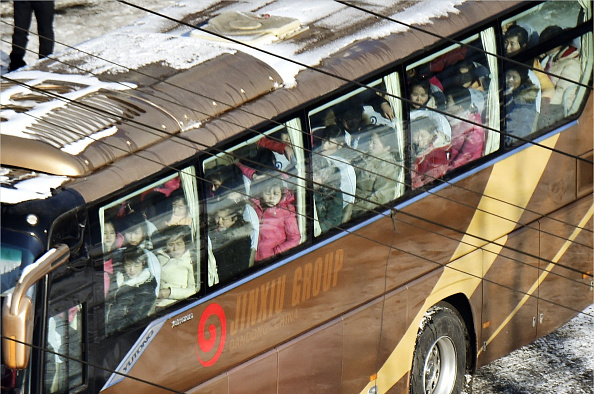North Korea has recently begun sending laborers to China, violating United Nations (UN) sanctions imposed against the regime.
As sanctions for North Korea’s continued testing of nuclear weapons, the UN Security Council passed Resolution No. 2375 last September, which stipulated that UN members cannot issue new labor permits to North Korean workers.
Several months later in December, the UN Security Council passed Resolution No. 2397, requiring UN members to repatriate all North Korean workers within 24 months. The Beijing regime had issued an order at the end of last year to repatriate North Korean workers.
But after North Korean leader Kim Jong Un visited China in late March, media have recently reported that scores of North Korean laborers have been sent across the border to China.
Citing intelligence from the South Korean government, South Korean newspaper Dong-a Ilbo reported on April 3 that Chinese firms in the northeastern town of Dandong bordering North Korea and other border cities have stopped repatriating North Korean workers.
The South Korean government learned that there were around 20 to 30 trucks traveling between Dandong and North Korea every day during the beginning of 2018. But that number increased to 50 in March. The number of trucks traveling between the border is one of the main indicators of the frequency of trade between China and North Korea. Before the UN sanctions against North Korea last September, the number had reached more than 100 trucks a day.

Citing a North Korean businessman who now works in Dandong, Japanese newspaper Sankei Shimbun reported on April 4 that after Kim Jong Un visited China, North Korean businessmen have been traveling to Dandong in succession, so much so that they don’t even have time to rest.
A Korean ethnic minority from Yanbian Korean Autonomous Prefecture in Jilin Province, northeastern China, told Radio Free Asia (RFA) that more than 400 North Korean female workers were sent to Helong City in Yanbian on April 2. “Kim Jong Un’s recent visit to China seems to have resulted in some gains,” he said, suggesting that trade restrictions between China and North Korea may have eased since then.
Another source from Dandong told RFA that he saw buses arrive in his city, carrying North Korean workers from Sinuiju City, North Korea, on March 30.
He said that the buses passed through the bridge over the Yalu River that separates North Korea and China. The customs at Dandong let those workers get off the buses. There were more than 100 people, including young women.
The North Korean government issues “passing river permits” for workers entering China, the source added, which is valid for 30 days only, according to an agreement between China and North Korea. However, North Korean authorities often issue permits valid for six to 12 months. China, meanwhile, has not enforced the rule.
Meanwhile, North Korean traders in China are actively recruiting laborers to travel to China for work.
The Epoch Times reported on March 30 that some North Korean-owned hotels in Dandong—which were previously shut down following the Chinese regime’s restrictions on North Korean businesses as part of UN sanctions—have recently reopened.
From The Epoch Times
Recommended Video:


